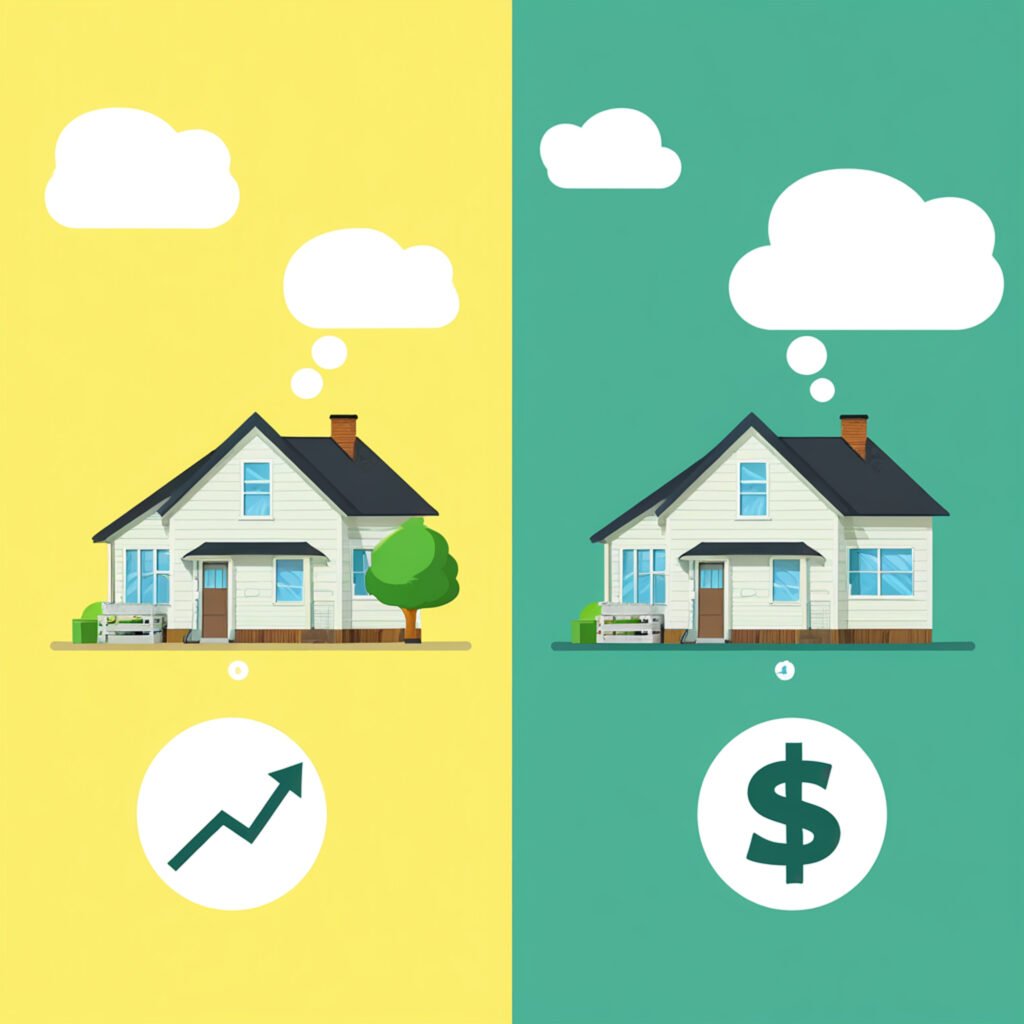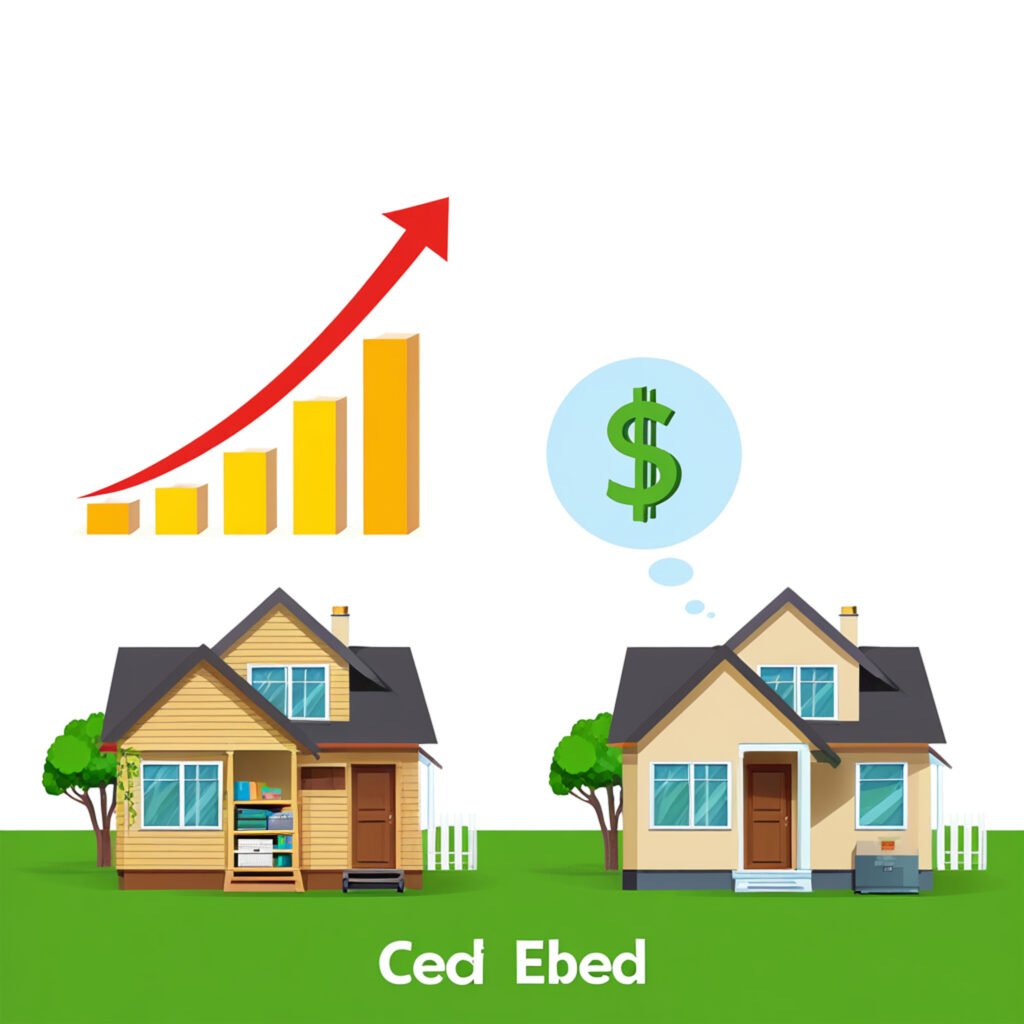A shed’s impact on your home’s value sparks debate among homeowners. The answer isn’t simple. Some studies show a well-designed shed can boost property value by 5-10%. Other experts say sheds add just 1-2% to your home’s overall worth.
The right shed could still prove valuable when you sell your home. Data shows that a shed that’s managed to keep its condition can recover 50-80% of what you paid for it. Real estate agents back this up. About 37% of them point to home office spaces and dedicated work areas as key selling features. A shed fits this need perfectly. On top of that, 31% of agents found that better outdoor spaces help homes sell faster.
This piece dives into what makes a shed valuable to your property. You’ll learn what helps and what hurts your property’s appeal. We’ll show you ways to tap into your shed’s potential as a selling point. Real estate experts and appraisers share their ground views about sheds and home values.
What experts say about sheds and home value
“Typically, we don’t add value to the home for a shed. It’s not a market value to buyer-seller activity. If [the shed] doesn’t have a foundation, it does not add value. It’s not real estate. If it was a personal property appraisal, it would be another story.” — Michael Keough, 30-year residential home appraiser in New Jersey
Real estate experts don’t agree on how sheds add to home values. Most appraisers and real estate professionals say a simple shed barely affects your home’s official appraised value.
Why sheds usually don’t increase appraised value
Most appraisers don’t add much value to sheds during home evaluations, which might surprise many homeowners. Four appraisers from different parts of the country share this viewpoint – sheds add little to a home’s appraised value. These professionals often label sheds as personal property or minor structures that don’t contribute much to the overall value.
Here’s why:
- Sheds aren’t counted in the home’s livable square footage
- Many can be moved around
- Their value goes down over time, unlike home improvements
“Typically, we don’t add value to the home for a shed. If it doesn’t have a foundation, it does not add value. It’s not real estate,” says Michael Keough, who has worked as a residential home appraiser in New Jersey for 30 years.
When a shed might help your home sell faster
Your shed might not boost your home’s appraised value much, but it can make your property more attractive to buyers. A well-built shed could help you sell your home faster in certain situations.
Sheds become more valuable when:
- Your house is under 1,200 square feet and lacks storage
- You have a tiny garage or none at all
- Buyers need a dedicated workspace or storage solutions
One expert puts it this way: “It could be just enough to give you a competitive edge in the market, as people care about having an easy place to store their gardening equipment”.
How appraisers view sheds with and without foundations
Your shed’s foundation determines whether appraisers include it in their valuation. A shed without a foundation becomes an accessory or personal property, whatever its looks or quality.
This happens because:
- Sheds without foundations can move from place to place
- They’re like other unattached outdoor items
- Local tax authorities put them in a different category
Sheds with proper foundations get more attention in appraisals and might add 1-2% to your property’s value. Some high-quality sheds, when turned into living spaces with proper permits, foundation, and utilities, could add up to $15,000 in value.
Factors that influence whether a shed adds value

Your shed can be a valuable asset or just an accessory at the time you sell your home. The value depends on several important factors. Let’s look at what makes the difference and how you can make smart choices to get the most from your investment.
1. Type of shed: prefab vs. custom-built
The value of your shed largely depends on whether you choose custom-built sheds or go with prefabricated ones. Prefab sheds are affordable and quick to set up. Metal versions start at $150, while plastic ones cost around $400. You can move or remove these structures easily, but this also means they don’t add much to your property value.
Custom-built sheds are a big deal as it means that they add more value to your property. These unique structures let you match your home’s style and create versatile spaces. They take longer to build and cost more at first, but they give you better returns over time because they’re built stronger and last longer.
2. Foundation and permanence
Appraisers look at your shed differently when it has a proper foundation. A shed without one is just a temporary accessory and not real estate. So it won’t count in your home’s appraisal, whatever its quality or looks.
A permanent foundation can lift your shed from being just a movable structure to becoming part of your property. This change is vital to make your shed count in appraisals. Remember, though – this might make your property taxes go up.
3. Local building codes and permits
Building without proper permits can turn your asset into a problem. You need permits in many areas if your shed is bigger than 120 square feet. If you don’t get the right paperwork, you might face fines, have to remove the shed, or run into problems when selling.
The rules about how far your shed must be from property lines are everything in getting permits. Different areas have different rules – some say sheds must be 5-10 feet from property boundaries.
4. Size and placement in the yard
Smart placement boosts both function and looks. A shed that fits well with your landscape creates a unified look and makes your property more attractive. Poor placement can mess up your yard’s layout and limit what else you can do with the space.
Size is also a key factor. Bigger sheds give you more storage space, but they shouldn’t take over your yard. Your shed should match your property’s size and leave enough open yard space.
How to make your shed a selling point
Your shed can become a valuable asset with the right planning. Smart design choices and presentation will make your shed stand out as a key selling feature.
Match the shed’s design to your home
Visual harmony starts when your shed’s exterior coordinates with your home. Pick colors that work well with your house’s current palette. Your shed should mirror your home’s architectural elements like roof angles, window designs, and siding patterns. These details help your shed look like a natural part of your home rather than an afterthought.
Keep it clean and well-maintained
A shabby shed can drag down your property’s value. Regular upkeep includes roof checks, structural inspections, and basic cleaning to make your shed a property highlight. Buyers notice this attention to detail, which shows you’ve taken good care of the entire property.
Use quality materials suited to your climate
Your choice of materials makes a big difference in how well your shed holds up. Wood sheds work great in cold areas because they insulate well. Metal sheds handle heavy snow and wind better. Vinyl or composite siding proves ideal for harsh weather zones because it lasts longer and needs less maintenance.
Stage the shed for showings
A well-staged shed catches buyers’ attention right away. The space should look spotless and organized. Add some landscaping touches like paths, flowers, or lights to make it more appealing. Make sure your shed has good lighting and stays pest-free.
Highlight its potential uses to buyers
Modern sheds do much more than store tools. Show buyers how the space could work as a home office, hobby room, art studio, or guest space. Set up the shed to showcase these possibilities. Buyers love finding extra space they can use without major construction work.
When a shed could hurt your home’s value

A shed in good condition can boost your property value. However, certain issues can turn it into a problem that hurts your home’s worth. You should know these potential risks to avoid mistakes that can get pricey.
Poor condition or lack of maintenance
Buyers quickly notice a deteriorating shed as a sign of neglect. Your property’s first impression suffers from rotting wood, rusting metal, or sagging roofs. These issues go beyond looks – structural problems raise safety concerns. Potential buyers might ask for repairs or lower their offers before closing the deal.
No permit or code violations
Building a shed without proper permits creates big headaches. Most cities require permits for structures that exceed specific sizes—typically around 120 square feet. Sheds without permits can lead to:
- Removal orders during inspections
- Extra fees and penalties
- Problems with property insurance
- Trouble when selling your home
Sheds built too close to property lines break setback rules in many areas. This creates conflicts with neighbors and local authorities.
Unappealing design or awkward placement
Bad design choices and poor shed placement hurt your yard’s look and usefulness. Buyers notice right away when a shed clashes with your home’s style. Even if the shed is practical, it can make your property less appealing when it takes up too much yard space, blocks sunlight, or makes it hard to reach other parts of your property.
Conclusion
The question of whether sheds boost your home’s value has no simple answer. Most appraisers won’t add much to your home’s official value for a shed, but the right structure can help sell your property. A shed with proper foundations could potentially add 1-2% to your home’s value.
Your shed’s condition and looks play a huge role. A shed that matches your home’s style and stays in good shape can become a key selling point. Buyers looking for extra storage or workspace love these features. Quality materials and proper permits make your investment a real boost to your property’s appeal.
All the same, some issues can turn your shed from an asset into a problem. Buyers see red flags in unpermitted structures, poor placement, and worn-down conditions. The local market, property size, and what buyers want should guide your decision to invest in a shed.
Sheds might not add huge numbers to your home’s appraised value. They are a great way to get practical benefits that make your property more appealing to buyers. A well-designed and properly kept shed makes sense for many homes, whether you need storage space, want a workshop, or just want to make your property more useful.
